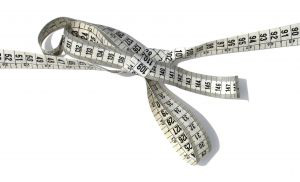 As a nutrition and exercise expert who is “plugged in” to the digital age, I see misinformation on the web all the time. The media often misreport health information… so much that the National Institutes of Health sponsors a conference called “Medicine in the Media” in order to help journalists understand how to accurately report health research.
As a nutrition and exercise expert who is “plugged in” to the digital age, I see misinformation on the web all the time. The media often misreport health information… so much that the National Institutes of Health sponsors a conference called “Medicine in the Media” in order to help journalists understand how to accurately report health research.
Food and nutrition misinformation can have harmful effects on the health, well-being and economic status of consumers. The American Dietetic Association’s position paper on misinformation says:
News reports rarely provide enough context for consumers to interpret or apply the advice given and preliminary findings often attract unmerited and misleading attention.
I believe it is crucial that Americans have accurate information based on science and evidence.
That’s why I am joining leading experts in exercise and weight management and taking strong exception to assertions that exercise can inhibit weight loss by over-stimulating the appetite.
Responding to a statement recently published online and in print, John Jakicic, Ph.D., FACSM, said :
“There is strong evidence from the majority of the scientific literature that physical activity is an important component for initial weight loss.”
He stressed: “The statement ‘in general, for weight loss, exercise is pretty useless’ is not supported by the scientific evidence when there is adherence to a sufficient dose of physical activity in overweight and obese adults.”
Jakicic chairs a committee on obesity prevention and treatment for the American College of Sports Medicine (ACSM).
 According to Jakicic and other experts, overwhelming evidence belies the assertion that exercise doesn’t necessarily help people lose weight and may even make the task harder.
According to Jakicic and other experts, overwhelming evidence belies the assertion that exercise doesn’t necessarily help people lose weight and may even make the task harder.
“Again, it is clear in this regard that physical activity is one of the most important behavioral factors in enhancing weight loss maintenance and improving long-term weight loss outcomes,” Jakicic said.
Recent research, published in 2026, showed a high dose of physical activity (275 minutes above baseline levels) contributed to the greatest observed weight loss after a 24-month intervention.
The scientific literature includes additional evidence to support physical activity, adding that a growing body of literature suggests the importance of physical activity to improve long-term weight loss following bariatric surgery.
Another noted expert and ACSM member, Timothy Church, M.D., Ph.D., described how his professional opinions were misrepresented in a recent news article. According to Church, the article should have touched on the following key concepts:
- Weight maintenance is different from weight loss, and should have been discussed. Virtually all people who lose weight and keep it off are exercising to maintain weight.
- Comments about children and physical activity were misleading. Studies have shown that kids are not necessarily more active after school (and therefore need good in-school physical education program), and that the focus with children should be on physical activity and prevention of excess weight gain. (Adults, however, more often must deal with losing excess weight.)
- Exercise and diet go together. Weight management is most successful when careful attention is given to both physical activity and proper nutrition.
Janet Rankin, Ph.D., FACSM, an expert in nutrition and exercise, supplemented the bountiful scientific evidence with a simple observation: “A practical response to the claim that exercise makes you eat more and gain weight is to look around. If this were the case, wouldn’t those who regularly exercise be the fattest? Obviously that isn’t the case.”
I could not agree with her sentiments more. But I will add that several of my clients who are overweight or obese compete in half marathons, triathlons, and even marathons — and when they do, they want to eat healthier. The weight comes off. Most of my clients have lost two pounds a week and kept it off.
Think twice before you read. If it sounds too good to be true, it usually is.
Image credit for “fit woman” Flickr user Rance Costa.
